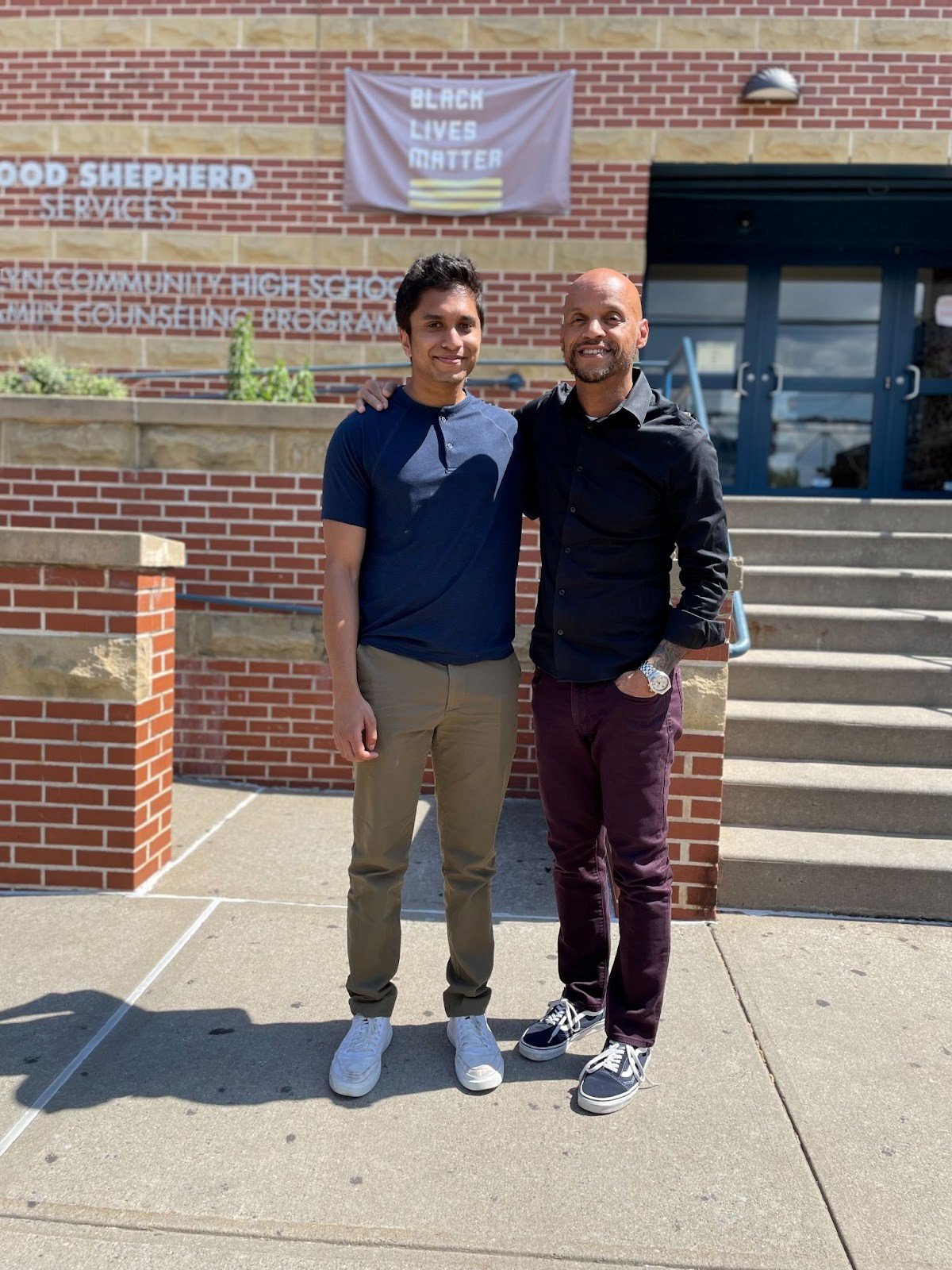Therapeutic Crisis Intervention: Creating Environments for Healing in Schools through Trauma Support Strategies
PRYDE Scholar, Rohit Agrawal HD ‘23, pictured with Misha Thomas outside South Brooklyn Community High School.
Over three weeks in August, I had the opportunity to work with Misha Thomas, an educational consultant. Getting started with Misha and his educational consulting business, I didn’t know what to expect. But by the end, I was amazed by how much he taught me in such a short time.
We went to a different school each week, observed their organizational cultures, and helped with the implementation of Therapeutic Crisis Intervention (TCI), a program developed by the Cornell Residential Child Care Project (RCCP). RCCP runs different research-based trainings and programs with the goal of creating environments where children can heal through the support of trauma-informed adults. TCI specifically trains staff members to proactively prevent crises from occurring. My internship opened my eyes to the importance of having programs like TCI. I observed Misha put the TCI strategies into practice in schools where there was a need for improved communication between teachers and students. Adolescents benefit from teachers demonstrating empathy and understanding, something that might be lacking in their daily interactions with other adults. Misha made a point at a meeting with the teachers at Abilities First that has resonated with me ever since the internship ended: “A good leader remains calm during tense situations.” Some of the best teachers at the schools I observed were the ones who were able to remain calm and in control even when stressful situations with kids arose. Working in the school systems demands a lot of resilience from educators, and I was inspired by the staff’s unconditional positive regard for children despite the challenges of addressing pain-based behaviors in classrooms. Some examples of pain-based behaviors include aggression, self harm, and other actions that are triggered by the re-experience of unresolved trauma.
I also had the opportunity to shadow different practitioners supporting youth health and well-being, including mental health counselors, social workers, psychologists, physical therapists, and occupational therapists. I want to pursue clinical psychology, so seeing healthcare professionals in action helped me imagine my future career. One of my favorite shadowing experiences included visiting a sensory gym with an occupational therapist at Abilities First. Sensory gyms support children by providing an engaging and inclusive environment for youth of varying abilities through play and physical stimulation. For example, I learned that physical stimulation, such as swinging on a hammock, helps children regulate their emotions. Emotion regulation can be challenging for children on the spectrum, so sensory gyms are especially beneficial by promoting the development of motor and communication skills.
While my work with Misha was very interesting, I always felt a sense of sadness by the end of the week when we would say goodbye to teachers and students I had met. It is hard not to develop an attachment to the schools, especially after being surrounded by so many passionate, kind, and loving staff members. I particularly miss the children I was able to foster relationships with. One particularly fond memory I have from this summer was when a child at the Biondi School made a drawing for me and called me his best friend on the last day I was visiting. This internship was truly a life changing experience. I never knew about educational consulting as a career path until this internship, but now I am certain that I want to pursue educational consulting alongside clinical psychology. Change through therapy largely focuses on the individual. However, I also want the opportunity to affect change on the systemic level, and educational consulting provides the opportunity to do so by working directly with schools to implement evidence-based strategies for addressing trauma. It was truly an honor to have the opportunity to work with Misha, and I could not have asked for a better summer experience!

